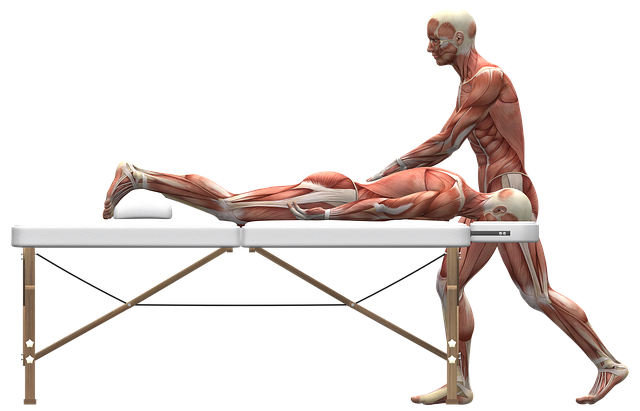Massage therapy in Miami, FL, requires specialized advocacy training due to unique risk factors, including inappropriate touch and assault. A massage abuse law firm in Miami, FL, is crucial for empowering therapists with legal protections, consent protocols, and crisis management skills. This training enables them to recognize red flags, maintain professional boundaries, and advocate for themselves and clients effectively, fostering a culture of respect and accountability. Therapists should navigate Florida laws on consent, privacy, and reporting suspected abuse, obtain informed consent, maintain confidentiality, and document interactions to protect themselves and their clients. Advocacy training equips therapists with tools to handle sensitive situations, foster open communication, and ensure client well-being, collaborating with local massage abuse law firms when necessary. This training is vital for preventing and addressing abuse, enhancing safety, and strengthening the therapeutic relationship in Miami's massage industry.
In Miami, Florida’s vibrant wellness scene, massage therapists play a vital role in promoting relaxation and healing. However, this profession isn’t without its unique risk factors, including potential client misconduct and abuse. Advocacy training emerges as a game-changer, empowering therapists to navigate complex situations safely. This article delves into the significance of advocacy for Miami massage therapists, exploring legal considerations, communication skills, and real-world impacts, all with an eye on preventing and addressing massage abuse, courtesy of local law firms dedicated to wellness community protection.
Understanding Massage Therapy's Unique Risk Factors
Massage therapy, a profession that involves intimate physical contact with clients, carries unique risk factors that necessitate specific advocacy training for therapists in Miami, FL. Unlike other professions, massage therapists are not only responsible for providing therapeutic relief but also ensuring their clients’ safety and well-being. The potential for massage abuse, ranging from inappropriate touch to more severe forms of assault, highlights the critical need for education on advocacy.
In this context, a massage abuse law firm in Miami FL can play a pivotal role in empowering therapists with knowledge about legal protections, consent protocols, and crisis management strategies. By understanding their rights and responsibilities, therapists can confidently navigate complex ethical dilemmas and respond appropriately when faced with potentially abusive situations. This training equips them to recognize red flags, set professional boundaries, and advocate for both themselves and their clients.
The Role of Advocacy Training in Protecting Therapists and Clients
Advocacy training plays a pivotal role in safeguarding both massage therapists and their clients in Miami, Florida, where issues like massage abuse can unfortunately arise. This specialized training equips therapists with essential skills to navigate complex situations, ensuring their safety and that of their customers. By learning about legal rights and boundaries, therapists can recognize and report any abusive or unethical behavior, fostering a secure environment.
In the event of mistreatment or exploitation, knowledge of advocacy strategies enables therapists to take immediate action. This includes documenting incidents, contacting relevant authorities, and even involving a massage abuse law firm in Miami FL for professional legal support. Through such proactive measures, therapists can protect themselves and their clients, promoting a culture of respect and accountability within the industry.
Legal Considerations for Miami Massage Therapists
In Miami, massage therapists must be aware of and comply with a range of legal considerations to protect themselves and their clients. Florida has specific laws regarding consent, privacy, and the reporting of suspected abuse or neglect. Massage therapists are not only expected to adhere to these laws but also to understand their rights and responsibilities in case of disputes or allegations.
A massage abuse law firm in Miami FL can provide invaluable guidance on navigating these legal aspects. Therapists must be vigilant about obtaining informed consent from clients, ensuring they communicate clearly about the services provided and any potential risks. Furthermore, maintaining strict confidentiality and documenting interactions with clients are crucial to protect both the therapist and the client from misunderstandings or false accusations.
Building Trust and Communication Skills Through Advocacy Training
Massage therapists in Miami, Florida, often encounter sensitive situations with clients who may have experienced trauma or abuse. Advocacy training equips them with the tools to navigate these complex scenarios effectively. Through role-playing and interactive workshops, therapists learn to build trust and foster open communication with clients, ensuring they feel heard and respected.
This training teaches professionals how to recognize signs of potential massage abuse or misconduct and provides strategies to respond appropriately. By developing strong communication skills, therapists can create a safe space for clients to disclose any issues or discomfort, thereby preventing further harm and promoting client well-being. With the help of advocacy training, Miami’s massage therapists can better serve their clients and collaborate with local massage abuse law firms when necessary.
Real-World Impact: How Training Empowers Therapists to Prevent and Address Abuse
In the sensitive field of massage therapy, advocacy training is a powerful tool to equip professionals in Miami, Florida, with the knowledge and skills to navigate complex situations. This real-world impact goes beyond simply providing legal understanding; it empowers therapists to become proactive in preventing and addressing abuse, which is a significant concern in the industry. Many massage abuse law firms in Miami FL highlight this training as a game-changer for several reasons.
First, education enables therapists to recognize subtle signs of potential misuse or non-consensual practices during sessions. With this awareness, they can take immediate action to de-escalate situations and ensure client safety. Moreover, trained therapists are better prepared to communicate boundaries and educate clients about their rights, fostering a more secure environment. This proactive approach not only protects both the therapist and client but also strengthens the therapeutic relationship, ensuring that every massage session is a safe and beneficial experience.





